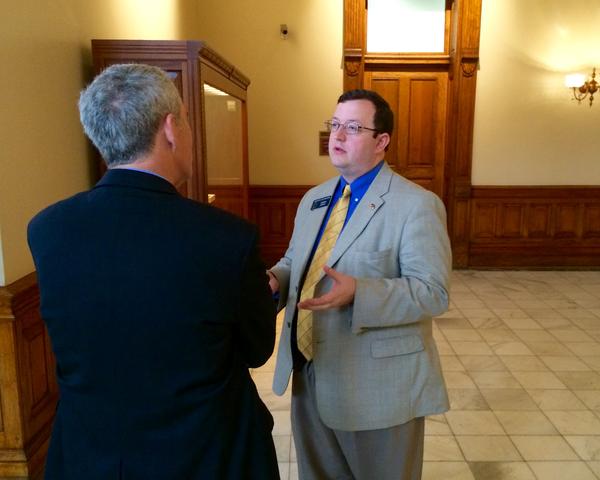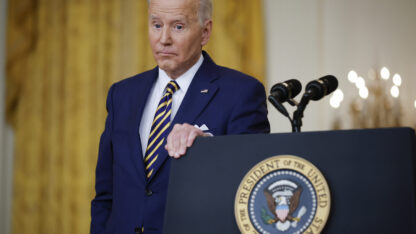Future Of Religious Liberty Bill In Doubt After Hearing Canceled

Time is running out for Georgia’s “religious liberty” bill.
A special hearing on the legislation scheduled for Monday was abruptly canceled this weekend.
But the bill’s author, Sen. Josh McKoon, R-Columbus, remains hopeful.
“I obviously would have liked for us to have moved forward this morning, but I’m going to keep making the case and work hard to get it moved,” said McKoon. “I’m exploring all possible options.”
Proponents of the bill want greater protections for religious expression, while critics see it as a means to discriminate against gays and lesbians.
Thursday, the House Judiciary Committee tabled the bill after a bloc of lawmakers amended it to include explicit anti-discrimination language. McKoon insisted the provision effectively “gutted” the bill. With no further committee meetings scheduled and legislative session set to wrap up April 2, the bill’s prospects appeared dim.
But late Friday lawmakers announced a new hearing for Monday, raising hope among bill supporters.
Rep. Jay Powell, R- Camilla, said he’s not surprised the meeting was canceled. He’s one of the lawmakers who insisted on the anti-discrimination language. He said the recent passage of similar legislation in Indiana – and the negative reaction that followed – shows why the language is needed.
“Certainly after what happened in Indiana, everyone wants to sort of take a step back and see where we are,” said Powell.
Moreover, he added, lawmakers on both sides of the debate remain at odds over the anti-discrimination language.
“I think there was an effort to see what kind of language they would accept and I don’t know if there was ever an agreement so there was no point having a meeting without an agreement.”
McKoon and several faith leaders said Monday they were disappointed by the cancelation. McKoon said bill opponents still cannot cite a case in which a similar law in other states was used to discriminate against gays and lesbians.
“I think the fact that Indiana has acted factors into the equation as does the reaction that’s out there. I personally think those opposed to the bill – because there are no fact-based arguments against its adoption – are now relying on friends in the convention area or corporate space to try and perform economic extortion, if you will … Almost like economic sanctions of a type,” said McKoon. “The question should be, ‘is it the right policy?’ … We don’t want a financial incentive or disincentive to drive policy.”
Congress, working with President Bill Clinton, passed the first “religious liberty” law in 1993. It came in response to a Supreme Court decision that lowered the legal standard by which government could interfere with a person’s First Amendment right to express religious beliefs. Since then, nearly 20 states have adopted similar legislation. In another dozen or so states, courts on their own have established a higher legal standard.
Jeff Graham of the advocacy group Georgia Equality maintains these laws lay the groundwork for discrimination. He says that especially would be the case here in Georgia.
“There are reports that there are business owners in Indiana that are already posting signs that they do not want to serve gay people in their establishments,” said Graham. “In Georgia, we do not have any state civil rights laws that protect anybody and so the bill would undermine all the local jurisdictions, like the city of Atlanta, that have protections for the gay and transgender community. That is troubling.”
9(MDAxODM0MDY4MDEyMTY4NDA3MzI3YjkzMw004))








